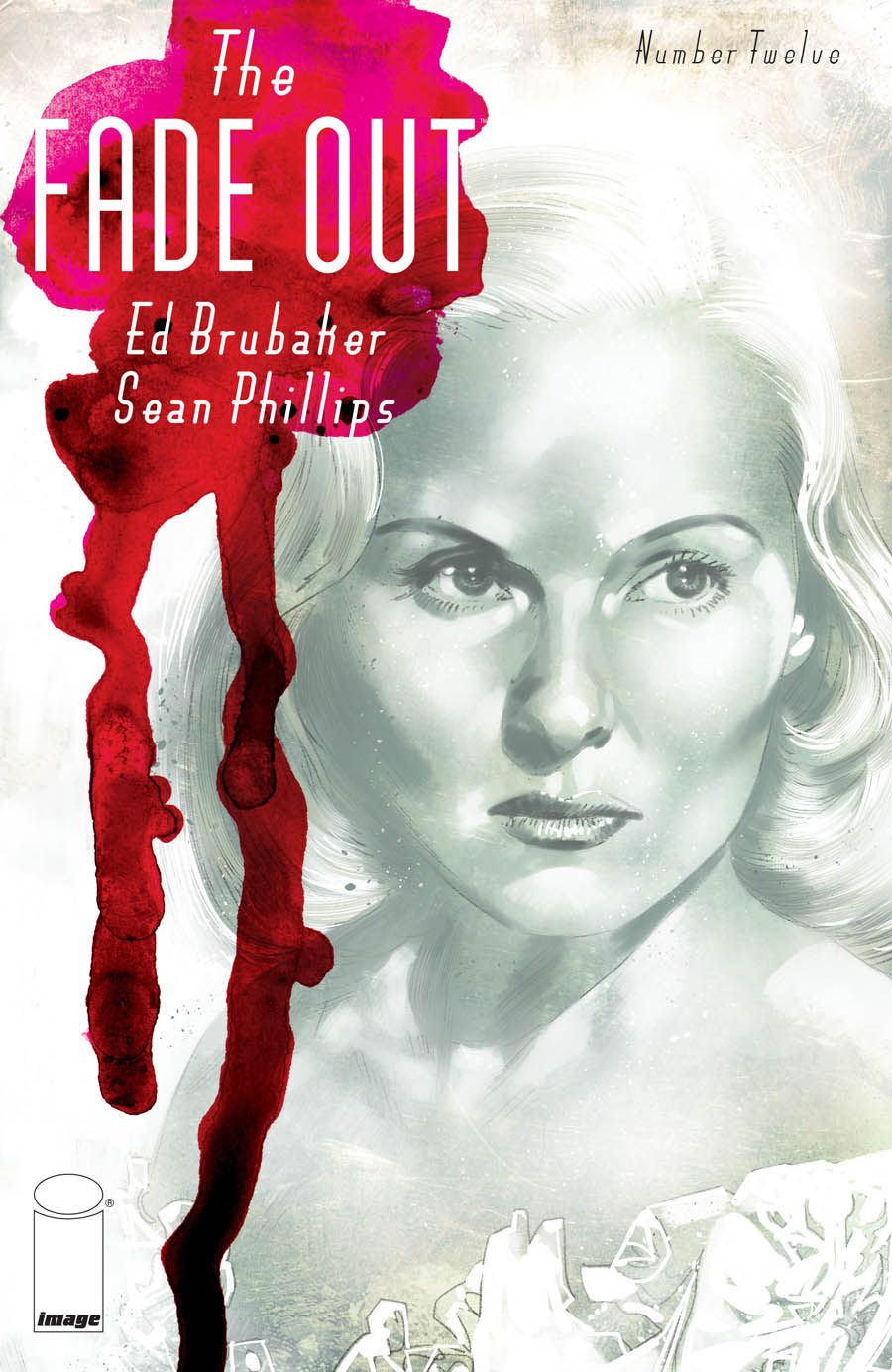"The Fade Out" #12 brings Ed Brubaker and Sean Phillips' noir Hollywood mystery to a close, and does so in an even more bleak manner than we've seen in the series up until now. Lest you think otherwise, let's be perfectly clear: there is nothing here that hasn't been telegraphed over the previous eleven issues, and -- if anything -- this ending does exactly what it needs to.
Our protagonist Charlie is reminded in the finale that "Girls die for nothin' and old men cry about it, and the business keeps on going," and that's exactly what Brubaker serves up here. This is, after all, a murder mystery that no one but our hero and his best friend are trying to solve. As the previous issue's cliffhanger reminded us, Charlie and Gil aren't detectives or heroes; they're broken-down writers running on desperation and booze. It's a fair assessment to say that it would keep in line with "The Fade Out" #11's grim ending if a solution to Val Sommers' murder never showed up.
Fortunately, Brubaker isn't as cruel as the worlds he writes about. He carefully guides us through Val's murder, making sure to give that central mystery a proper amount of closure. At the same time, though, this isn't Charlie Parish's screenplay, where everything wraps up neatly with a bow on top. In many ways, no one truly gets what they want, even as resolutions are offered up left and right: Charlie gets his answer; other characters get the person or job of their dreams. Many of them end up in stronger positions than they were at the start of "The Fade Out" #1. But all the while, Brubaker gives us a dark tinge to the otherwise silver linings. Some characters might be smiling to the press, but no one is particularly happy. At best, there's resignation. At worst, they're bordering on despair.
And that's what's so great about "The Fade Out" #12, because it would have felt like a cheat for a happy ending. Even more than Brubaker and Phillips' last series "Fatale," this could never lead to something chipper and upbeat without betraying the mood that was set up in all of its previous chapters. "The Fade Out" #12 is ultimately a reminder that you can get everything you ask for and still be in a bad place. The solution to "The Fade Out" is one that plays fair, but -- as Charlie himself notes in this issue -- who would he go to with the information? There's no simple solution available.
The one part of this comic that will put a smile on readers' faces is Phillips' art. There isn't a single wasted panel. Just look at the first page when Charlie wakes up in the bed, and it's focused on him in the lower right hand corner. The panicked look on his face, the way he's clutching the mattress edge and the half-shadow across his face connect perfectly with the single swear word he utters. Compare that to the next panel, as he sits up in bed and you see how perplexed he is upon seeing Maya. The body language is perfect, with a half-seated posture that tells you he has paused in mid-motion upon realizing where he is. Add in the slight rumple to his clothes or just the very edge of the blood still splattered on his shirt, and you can see how well Phillips and Breitweiser do their jobs here. By the time we're on page two and you see Charlie's eyes widen considerably when he realizes he doesn't know where Gil's car is, readers will be completely sold -- and that's as you recognize the leaning fence sections and the low-hanging wires and realize they're in a run-down section of Chavez Ravine. And that's before you see the almost misty, gray flashbacks later in the book, or the look of regret over a certain character's face right before we learn how Val Sommers died.
That final panel of the series, with the glitz and glamour of Hollywood behind Charlie, is pretty fantastic. With all of the lights shining down on Charlie in his current state and coupled with a beautiful final sentence, "The Fade Out" #12 hits you like a ton of bricks. It's over, and -- while Charlie learned who killed Val -- there is no justice. Has he failed? Or are Brubaker and Phillips following up on the previous issue's cliffhanger where Charlie realizes he's not a hero, just a part in the machine that is Hollywood? He's learned not only the truth of Val's death but also a bit more about what really makes this world tick. It's grim, it's unsettling and it doesn't stick around one second longer than it has to.
Some people will be startled by the conclusion of "The Fade Out" #12, if only because there is no gentle, proverbial fade out as it all quietly winds down. Here, we get a sudden jump to black as it concludes, leaving us with just our thoughts -- and that's the way it should be. It's been one hell of a ride and, as always, I know I'll be there for whatever Brubaker and Phillips do next. I'm the rest of "The Fade Out's" readers will, as well.

